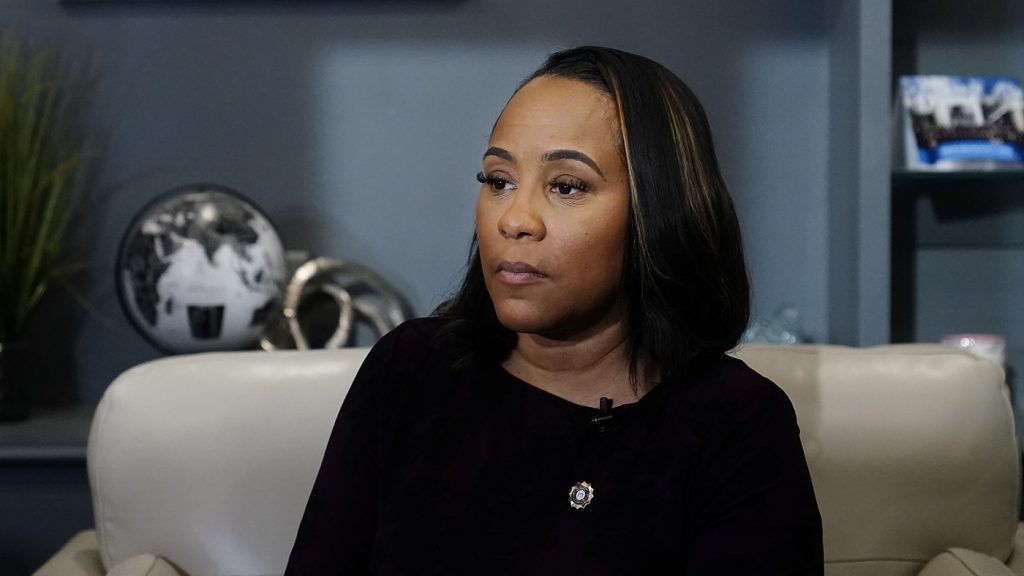Georgia Judge Scott McAfee has given Fulton County District Attorney Fani Willis (D) a way to proceed with prosecuting former President Trump for his involvement in the election, but he also reprimanded her for having a romantic relationship with a top prosecutor.
McAfee said Case of Trump’s interference in the election can move forward with Willis leading as long as her former romantic partner, special prosecutor Nathan Wade, steps aside.
But his 23-page ruling also criticized the district attorney for the romantic relationship and her public statements, saying it created the appearance of a conflict.
“Our highest courts consistently remind us that prosecutors are held to a unique and demanding professional standard given their public responsibility and power,” McAfee wrote. “Every new prosecutor should be inspired to prioritize justice over convictions and to strike hard but fair blows.”
The district attorney’s office has not responded to a request for comment.
All parties involved admitted to the romance, but Trump’s defense challenged Willis and Wade's claim that it began after they started working together. The judge said he couldn't definitively determine when the relationship began.
Willis also stated that she split vacation costs with Wade by reimbursing him with cash. With limited ways to confirm or refute the claim, McAfee said the defense did not do enough to disprove her testimony.
While the judge did not directly accuse anyone of lying, he did mention “reasonable questions” about whether Willis and Wade were truthful when they testified under penalty of perjury.
“However, doubts about dishonesty persist,” McAfee wrote. “The Court is not obligated to uncover every potential instance of dishonesty from every witness or defendant in court. Expecting this would result in a halt to the efficient handling of criminal and civil cases.”
“Yet reasonable doubts about whether the District Attorney and her chosen lead SADA were honest about the timing of their relationship reinforce the appearance of impropriety and the need to address it proportionally.”
According to McAfee, even if Willis and Wade's statements were true, it still created the appearance of a conflict.
“Even if the romantic relationship began after SADA Wade's initial contract in November 2021, the District Attorney decided to continue overseeing and paying Wade while being in that relationship,” McAfee wrote.
“Furthermore, she permitted the regular and informal exchange of money between them without a clear or verifiable method of reconciliation,” he continued. “This lack of a confirmed financial division suggests the possibility and appearance that the District Attorney benefited — even if not materially — from a contract that she had the sole authority to award and oversee.”
McAfee’s ruling also extended beyond the romance to criticize public remarks made by Willis regarding the controversy and the case against Trump's 2020 election interference efforts in Georgia.
The judge criticized Willis’s unusual choice to give interviews to authors writing a book about her Trump prosecution, and he also criticized her speech at a January church service honoring Martin Luther King Jr.
Before Willis’s office responded to the romance disclosure in court documents, that speech marked her first public remarks about the controversy. She suggested race played a role in the criticism over her and Wade, who are both Black, saying that people had not criticized two other special prosecutors hired for the case, who are both white.
Prosecutors later claimed the comment wasn’t directed at any defendant, but the speech nonetheless prompted Trump and others to officially support the disqualification effort.
The impact of this speech was to cast racial doubt on an indicted Defendant’s decision to file this pretrial motion,” McAfee ruled.
The judge, however, did warn that the comments did not cross the line to the point where Willis must be disqualified or Trump is being denied a fair trial.
“But it was still legally improper. Providing this type of public comment creates perilous waters for the District Attorney to further involve herself in,” the judge wrote.
“The time may well have arrived for an order preventing the State from mentioning the case in any public forum to prevent prejudicial pretrial publicity, but that is not the motion presently before the Court,” McAfee noted.









